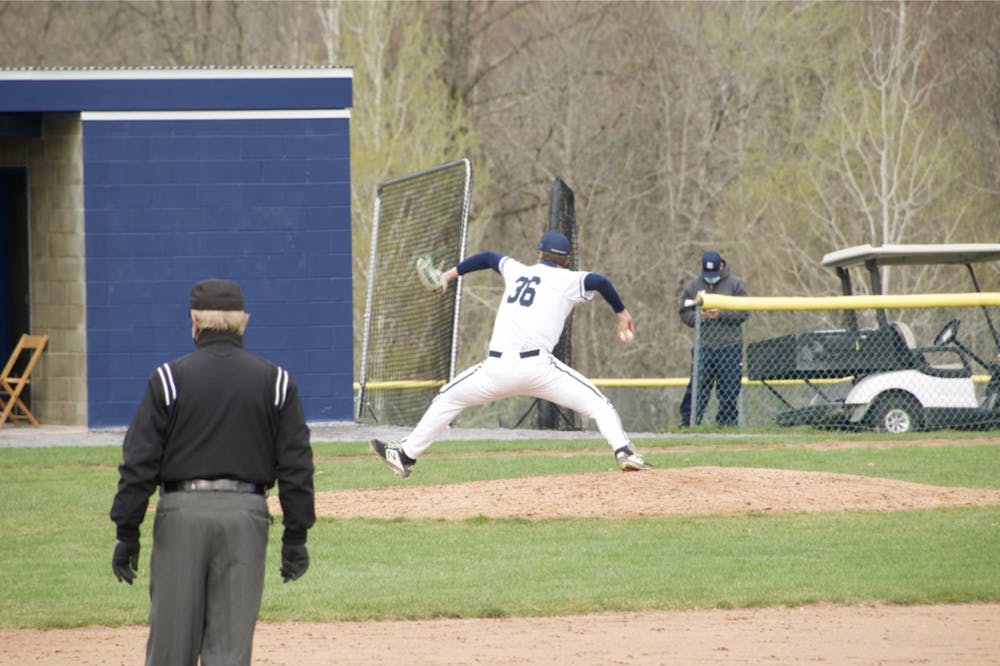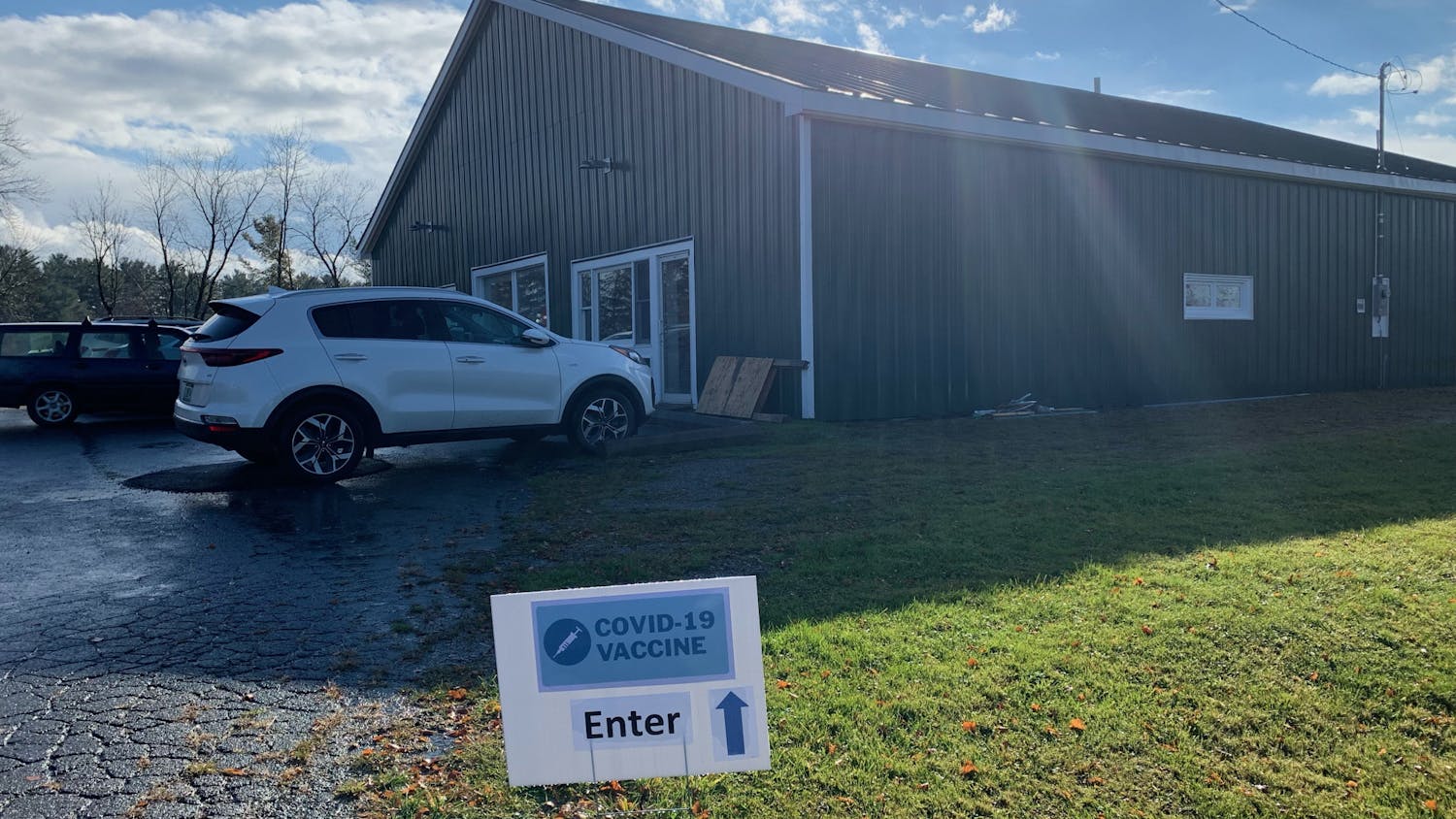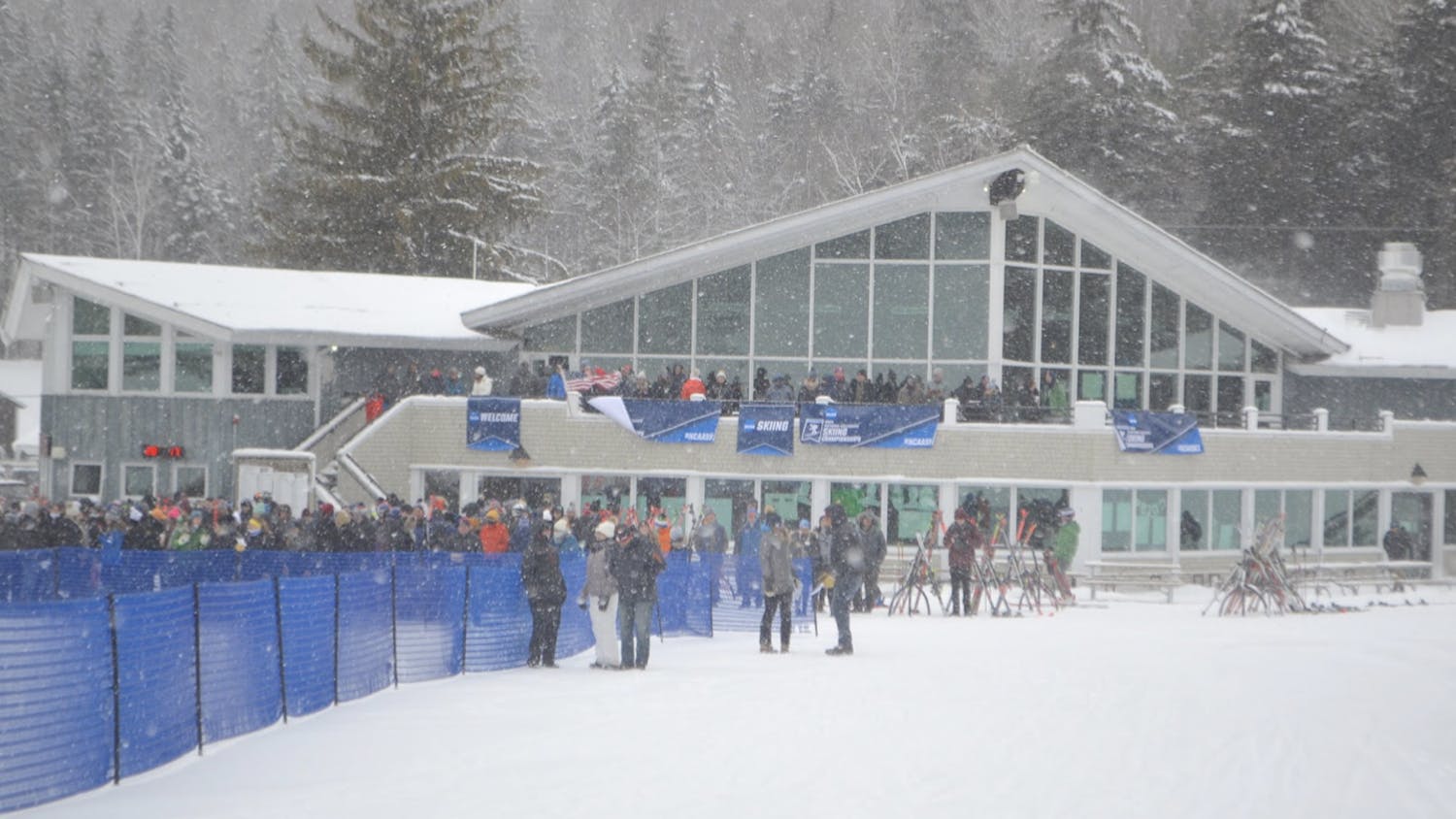Michael Lewis’ critically acclaimed novel “Moneyball” famously highlighted the advent of analytics and the relentless pursuit of efficiency in baseball management. In the 18 years since the book came out, the baseball community has continued to embrace new technology and data, and Middlebury’s baseball and softball teams are not missing out.
In the middle of October, Driveline Baseball, a nationally recognized, data-driven development organization, came to campus to work directly with the baseball and softball teams in preparation for their upcoming spring season.
Driveline has worked with Major League Baseball stars in the past, including Clayton Kershaw, Kenley Jansen and Taijuan Walker.
This isn’t the first time Middlebury has worked with Driveline; before the pandemic, the baseball team would hold summer training sessions with the company. But the relationship grew to a new level in the spring of 2021, when a handful of players on the baseball team trained at the Driveline headquarters in Kent, Wash. After a successful visit, the baseball and softball teams invited the company to campus for an on-site visit.
“We're always looking at who in baseball is doing new creative and innovative things with the game,” head baseball coach Mike Leonard said. “We’re trying to do the best we can to make sure we're bringing as much information to our players as possible.”
During the on-site visit, Driveline and Middlebury used a number of strategies to improve the teams’ pitching and hitting.
On the pitching side, the Driveline staff recorded motion capture videos of Middlebury pitchers and analyzed their biomechanics. The team also used “Rapsodo” machines, devices that analyze the location, velocity, spin rate and movement of pitches. Put together, this new information measured the skills, ability and effectiveness of Middlebury’s athletes, comparing them with other collegiate players.
As for hitting, Driveline added a number of new data collection tools to the team’s repertoire. For instance, Driveline gave the teams access to Blast Motion devices, sensors placed on the bottom of bats that analyze swings in real time, and K-Vests, a vest that hitters will wear to analyze the biomechanics of their swing. With the collected data, Driveline analysts gave specifically tailored drills to Middlebury’s hitters.
“It helps us improve because it actually gives us concrete stuff to work on,” said Abby Santis ’24, an outfielder on the softball team. “It can be easy during the offseason to get lost going through the same motions.”
For both teams, the data has been an extremely valuable tool, especially since most of the players have missed two spring seasons due to the pandemic.
“We're trying to use the Driveline information, data and training to give each athlete the tools and resources so that they can become the best version of themselves,” said Leonard. “We kind of have these simultaneous goals of building a strong culture and strong environment for our team, while knowing that each individual has areas where they can improve.”
Leonard did stress the limitations of data, cognizant that communication and conventional coaching are also important factors in developing a successful team.
“As coaches, our job is always going to be OK, data tells us X, Y and Z, but how do we communicate that to the athlete and how does the athlete put that into practice,” Leonard said. “Data is not ever going to replace the training and coaching piece of being on a team.”
Jack McGuire (he/him) is a Senior Sports Editor.
Jack previously served as a Sports Editor and as a Staff Writer. He also spent this past summer working as a News Reporting Intern for Seven Days.
Jack is also majoring in economics with minors in political science and film and media culture.




